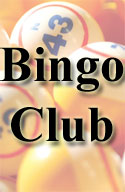Bingo is said to have evolved from an Italian game called Il Giuoco del Lotto d’Italia in the 1500s, with reports of a French version called Lotto appearing in the 18th century as well as a 19th century German incarnation used as a children’s game.
Bingo Legend
Legend has it that in the late 1920s, American salesman Edwin Lowe happened to see the game being played at a carnival, where a caller produced numbers from a cigar box and players marked their cards with dried beans. Lowe took the idea, called Beano at the time, back to New York, where he hosted games for his friends. A particularly excited player shouted “bingo!” on winning rather than “beano”, which then became the game’s new name.
Bingo saw a boom in Britain in the late 1960s, with bingo clubs springing up across the country, many in buildings which had formerly housed cinemas and dance venues. The spinning machines with physical balls of days gone by may have been replaced by computerised random number generators, but the game remains pretty much the same and is as well-loved as ever.
Linked bingo allows players to win larger amounts as bingo halls across the nation join together to play one big game, with the numbers being called simultaneously at each participating venue.
Biggest Bingo Club Win
Britain’s biggest recorded bingo club win came in March 2008 when Soraya Lowell from North Lanarkshire took home £1.1 million.
Today, Britain boasts hundreds of dedicated bingo venues, with many more pubs and clubs also offering bingo games as part of a programme of events. Roughly three million people are said to play bingo at clubs across the country on a regular basis.
If you want to know more about playing bingo in clubs today, read the FAQs, where all of your queries will be answered.

